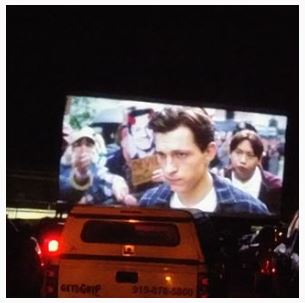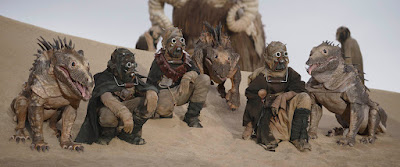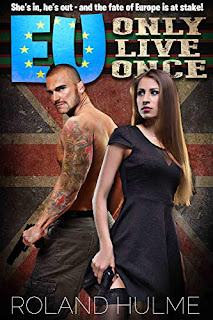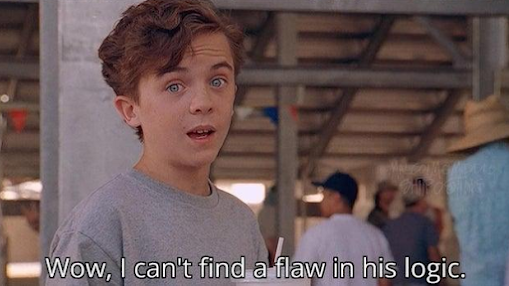Let's start with a story. Once upon a time, there was a 19-year-old boy with a radical older brother. This guy was, by all accounts, fairly normal--popular, even. But then he became angered by the injustices committed by the mighty empire he lived in, and he followed his brother into battle, in a manner of speaking. They struck hard, and the brother was killed by the authorities. The boy was sentenced to death. Then his face was featured on the cover of a major entertainment magazine, in glamorous celebrity fashion, and an outpouring of sympathy ensued from those who found him attractive.
I am talking about the Boston Marathon Bomber, whose actions killed 3 and injured hundreds more.
I don't know whether, in my various rantings and ramblings, I've brought this up before, but that incident came to mind following the release of Star Wars: The Force Awakens in 2015, when countless fans immediately walked out of the theater and began romanticizing the genocidal villain Kylo Ren, whose first on-screen action is to slice an unarmed old man in half and order the burning of a village, and whose interactions with the heroine, Rey, are to kidnap her, interrogate her as she weeps in terror, knock her out by throwing her into a tree, put her best friend in a coma, and then chase her through the woods with a laser sword. How romantic. Kylo Ren was, of course, played by the striking Adam Driver.
And that, my friends, is pretty privilege playing out: No matter how atrocious their actions, some people will be glamorized and romanticized simply because they have a pretty face. Particularly young men, based on my casual observations.
And then there's the common pop culture trope that physical attractiveness equates to moral goodness, and unattractiveness equates to wickedness. In pretty much every fairy tale, the morally good character is described as beautiful, while the wicked villain is ugly - a hideous old witch, or a grotesque goblin. This holds even across notable exceptions: In Beauty and the Beast, the ugly Beast transforms into a handsome young man after finding love - he is rewarded for goodness with attractiveness. In Snow White, the beautiful Evil Queen transforms into an ugly hag before her death.
It seems as if society has conditioned us to automatically equate physical attractiveness with goodness, and few question that instinct. Back when Disney's animated Aladdin movie was released, I don't think anyone wanted to see the beautiful Princess Jasmine end up with a "tall, dark, and sinister ugly man," as the Genie described Jafar. When the live action cast was announced, with the handsome Marwan Kenzari cast as Jafar, the shipping began almost immediately. I remember even seeing the cover of an indie romance novel with look-a-likes for Kenzari and Naomi Scott (who played Jasmine) as the cover models, with a plot that was clearly Jasmine/Jafar fan fic.
Meanwhile, has anyone ever hoped for a redemption arc for Emperor Palpatine, whose face was scarred by Force lightning until he resembled an undead alien? In the years before it was revealed that Darth Vader was Leia's father, did anyone ever dream of a romance between the helmeted villain and the young heroine?
Come to think of it, Leia and Darth Vader's interactions in Star Wars: A New Hope are pretty similar to Rey and Kylo Ren's in Star Wars: The Force Awakens, which many have argued (with some merit) is basically a remake of A New Hope. But one villain kept his helmet on and the other took it off to reveal a pretty actor.
There are, of course, a lot of less extreme examples of pretty privilege at work, in real life and in fiction. People who fit society's ideas of beauty get treated better and are assumed to be better at things, as parodied in the 30 Rock episode "The Bubble."
In the world of fiction, it's easy to brush off arguments about redemption and romance arcs for beautiful villains by saying, "Hey, it's just entertainment." It's just fun, so what's the big deal?
And let's face it, we all like watching and reading about pretty characters. To quote Lem from my Better Off Ted, my favorite office parody, "I like it when attractive people do anything." I'm as guilty as anyone... I'm pretty sure every major character in anything I've ever written has been described as physically attractive at some point.
Of course, one can say that all people are beautiful, and I don't think it's a problem in prose fiction to describe characters as such, especially when it's from a close POV and we're viewing from the eye of the beholder, the POV character. But I do think it's worth thinking about why, whenever a villainous character's attractiveness is called out, they're pretty much automatically romanticized.
Oh, that reminds me, in an attempt to push back against the "ugly is evil" trope, I described the villainous Viceroy Kang in Stronger Than a Bronze Dragon as being visually handsome, and the main girl finds him unattractive because of his cruelty rather than his physical features. Yet because of that one short description, I actually had a reader say she was shipping them... *shudder*
Anyway, I'm not saying that there's anything inherently wrong with redemption arcs or enemies-to-lovers tropes... goodness knows those have been around since the dawn of storytelling. But it is worth thinking about who is considered worthy of redemption and/or romance, and questioning the innate gut instinct to equate attractiveness with goodness (or, in the case of a pretty villain, potential for goodness, with more benefit of the doubt than anyone can reasonably expect).
Because like it or not, these instincts translate into the real world, into the snap judgements we make about those around us, into the way we treat the people we interact with, and the way we're treated in return.

















